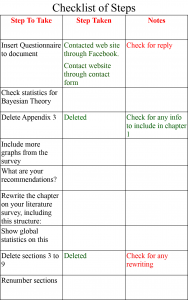
5 Tips For Procrastination When The Job Is Really Hard

Procrastination – Is It Laziness?
Do you tend to procrastinate at work or when studying? Some people think they are being lazy when they find other activities to do instead of what they should be doing or that they feel they should be doing. Procrastination is putting off doing a particular job instead of just getting it done but there can be many reasons for this. Sometimes it’s boredom or dislike of routine jobs like washing dishes or cleaning the car but for many people, the job they are trying to do is just too hard or they don’t know how to go about it.
What is Procrastination?
Do you find yourself surfing the internet, playing a game or watching TV when you should be studying? Maybe you take a few more trips to the water cooler or the coffee machine or stay longer in the canteen instead of writing that report or getting out those figures? Maybe the dishes get done instead of the pile of ironing, or hanging a picture on the wall instead of decorating the spare room? That is procrastination – putting off doing something – avoiding it.
Sometimes it’s really hard
Not doing the dishes or washing the car may often be down to boredom but not studying for an exam or writing a big report may be because you simply don’t know how to do it or even how to get started. In work, often people think this kind of stuff was learned in school but that’s not always necessarily so. If you have a really big and hard job to do, then here are five tips to help you stop procrastinating and seeing yourself as lazy:
1. Get a Break Away.
If you are feeling very bad about this piece of work, whether it’s a report or studying, then sitting mulling over it or playing games instead of getting on with it won’t help. Take 5 minutes, half an hour, half a day or whatever you need to calm your feelings down. Sometimes time pressures won’t allow a long break but even 20 minutes kicking leaves under a tree in the park or even sitting in the peace of the nearest toilet cubicle can give you time to regroup your strength and deal with your feelings of anger, despair, fear or whatever.The break does NOT include sitting on the computer or other avoidance tactics. This is time to allow you to deal with feelings about this piece of work.
2. Find Support.
The best support is having someone to listen who will not interrupt or judge you. If you don’t have a close friend, then phone someone. If you really do not have anyone to talk to about this, then write down your thoughts in a journal. There are even online journals where you can write anonymously and no one will see it. Talk (or write or scribble or draw) about the problem. It’s fine to grumble about the people involved, the short timescale, the difficulties involved but NOT to be negative about yourself. You are NOT lazy or stupid. If you want to say something about yourself, then couch it in terms such as “I don’t YET know how to start on this”. You would be best to bin or burn any document like this after you finish it. You will have got rid of your negative feelings and you don’t need to re-energise them.
3. Make a checklist.

If you have terms of reference for a report or a feedback list of things to do or an item to study up on for a test, then draw up your own list of baby steps towards getting it done. Don’t use someone else’s list. I find the best way is to have 3 columns on a piece of paper, one for the list of baby steps and the other two columns to show what I have done and any extra work arising from that. I generally colour in the steps I have taken in green and the new steps that arise from that in red until I do those too, then I do those in green too. Seeing a list of checkmarks or green lines is motivating because it shows I am moving on with the work.
4. Ask For Help.
If making your checklist seems too difficult, then it’s time to ask for help, direction or support from the person who set you the task. They may not realise that the task is as difficult as it seems to you or they may have been unclear in their direction. It’s better to ask for direction while you still have time to complete the task, rather than complain you couldn’t do it when it’s already too late to do something about it.
5. Rebuild Your Passion.
If you are doing this for yourself, it’s much easier to work on it. Do you want to do well in your job, get an exam, be qualified to do a job you want? Then develop your passion for the job or the study. Work out WHY you want to do this in the first place. And remember, it’s always for YOU, even if someone else pushed you towards the goal in the first place. If you do not want this goal, then find the one you DO want and use these tips to reach that instead.
Avoiding Avoidance
Now I have procrastinated long enough – time to get back to my checklist of baby steps and tick a few more off the list!